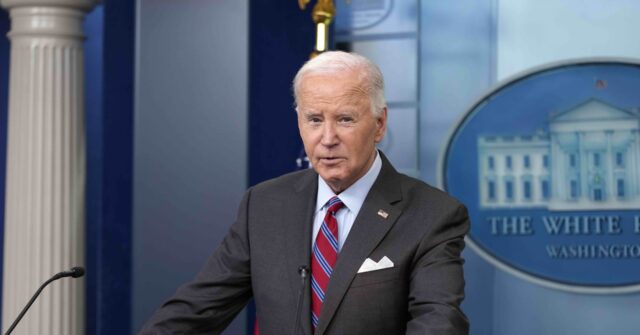In a significant diplomatic moment, President Joe Biden appeared in the White House briefing room to address the escalating tensions between Israel and Iran following a ballistic missile attack. Biden urged Israeli officials to reconsider any potential military response targeting Iran’s oil facilities, suggesting that other alternatives should be explored. This stance aligns with his earlier statements, where he advised against strikes on Iran’s nuclear sites, emphasizing the need for measured actions in the face of rising hostilities. Biden’s remarks indicate a cautious approach, balancing U.S. support for Israel with the complexities of international relations and the potential repercussions of military actions in a volatile region.
The president’s comments were further contextualized by a question from CBS News reporter Weijia Jiang, who inquired whether Israeli Prime Minister Benjamin Netanyahu might attempt to sway the upcoming U.S. elections. Biden responded defiantly, asserting that no administration has done more for Israel than his, hinting at the longstanding and robust U.S.-Israel relationship. He acknowledged the historical significance of U.S. support for Israel while subtly cautioning Netanyahu against any perceived political interference. Biden’s insistence on his administration’s commitment to Israel underscored the complexities inherent in U.S. foreign policy, particularly regarding an ally that has often operated independently of American advisement.
This interplay drew critical questions from reporters about Israel’s recent defiance of U.S. guidance, highlighting a growing rift in the U.S.-Israel dynamic. The questions posed were seen as provocations, suggesting that Israeli leaders might not fully adhere to U.S. requests or recommendations. This situation raises issues about the effectiveness of U.S. diplomacy and the extent to which Israel is willing to align its military strategies with American interests. Reports from outlets such as the Times of Israel pointed towards a media narrative that seeks to scrutinize Biden’s approach to Israel, as tensions in the region continue to simmer.
Biden’s administration’s careful navigation of these relationships reflects the broader challenges faced in international diplomacy, especially when dealing with allies who may pursue divergent strategic interests. The friction over military responses to threats from Iran illustrates the difficulties of maintaining a unified front in a region marked by unpredictability. Furthermore, it underlines the necessity for the U.S. to engage in diplomacy that respects Israel’s sovereignty while also recognizing the broader implications of militaristic responses in a geopolitically sensitive area.
The conversation around Iran’s nuclear capabilities remains a pivotal concern for both Israel and the United States. Biden’s warnings against military strikes on Iranian nuclear facilities suggest a preference for diplomacy and negotiations rather than aggressive actions that could lead to escalated conflict. The administration’s approach seeks to balance the safeguarding of American interests in the Middle East with support for Israel, a nation that perceives a direct threat from Iran’s military advancements. This balancing act is critical for maintaining stability in the region, as miscalculations can have far-reaching consequences not just for U.S.-Israel relations but for global security.
Ultimately, the dynamics of U.S.-Israel relations are complex and fraught with challenges, particularly during times of heightened tensions with regional adversaries like Iran. Biden’s public declarations reflect a nuanced strategy aimed at reinforcing U.S. commitment to Israel while advocating for cautious deliberation in military engagements. As the situation evolves, it remains to be seen how these diplomatic efforts will shape the future of U.S. foreign policy in the region and affect Israel’s actions in its ongoing struggle with Iran. The approach emphasizes dialogue and restraint, critical components that could influence broader peace efforts in a historically conflict-ridden area.

